Social Development and Humanitarian Assistance
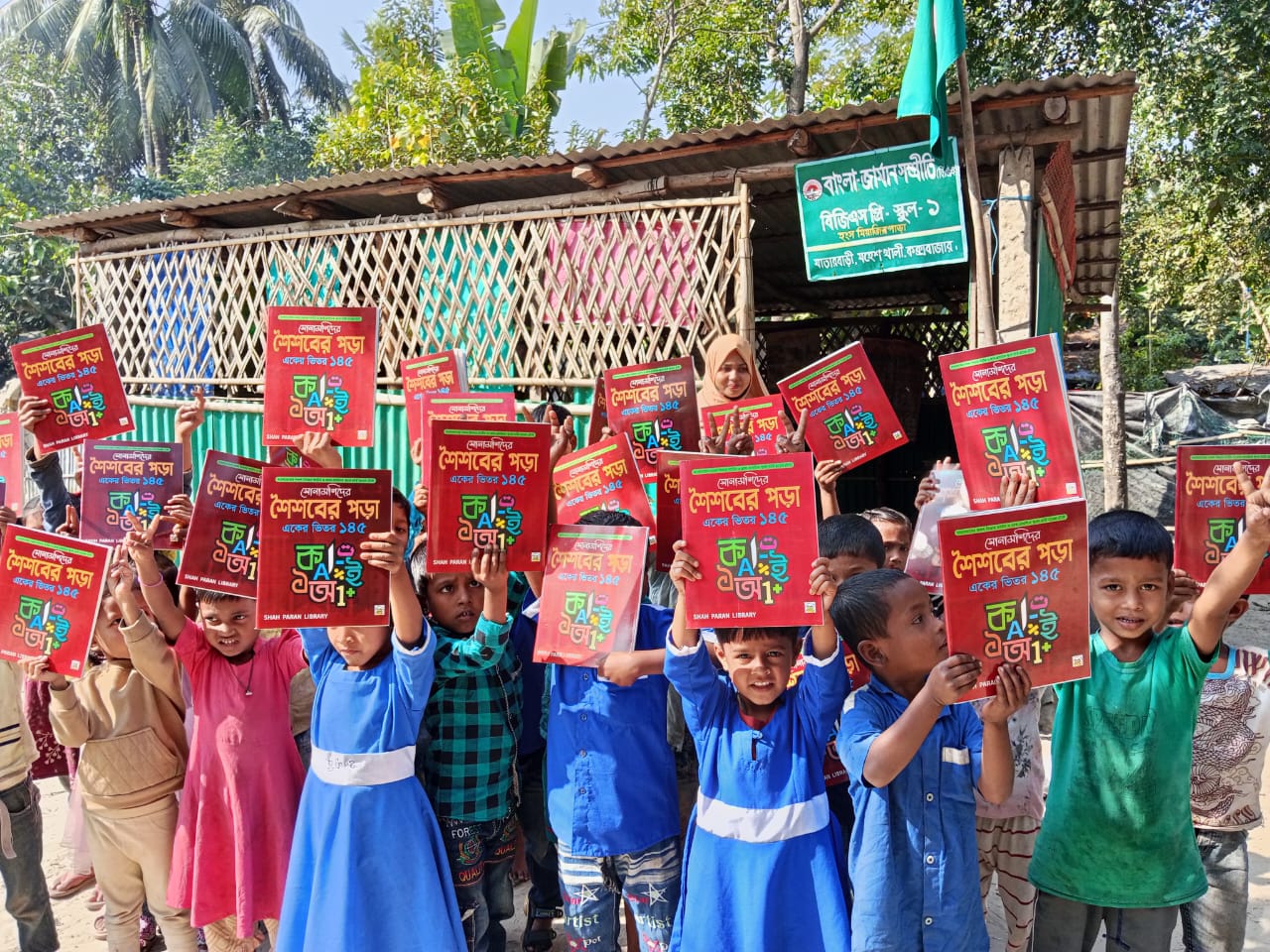
Non-Formal Education
The Non-Formal Education Program is one of the priority programs of BGS intervention. BGS believes that education is one of the most important building blocks for developing the nation. Considering the importance, BGS has given emphasis and implemented education program from its inception. The non-formal education program is one of the approaches especially in the pre-primary education sector which has gained a remarkable achievement during the last 2 decades. BGS has also implemented the program in its working catchment areas of Cox’s Bazar, Khulna, Bagerhat, Rangamati, Khagrachari and Tangail districts.
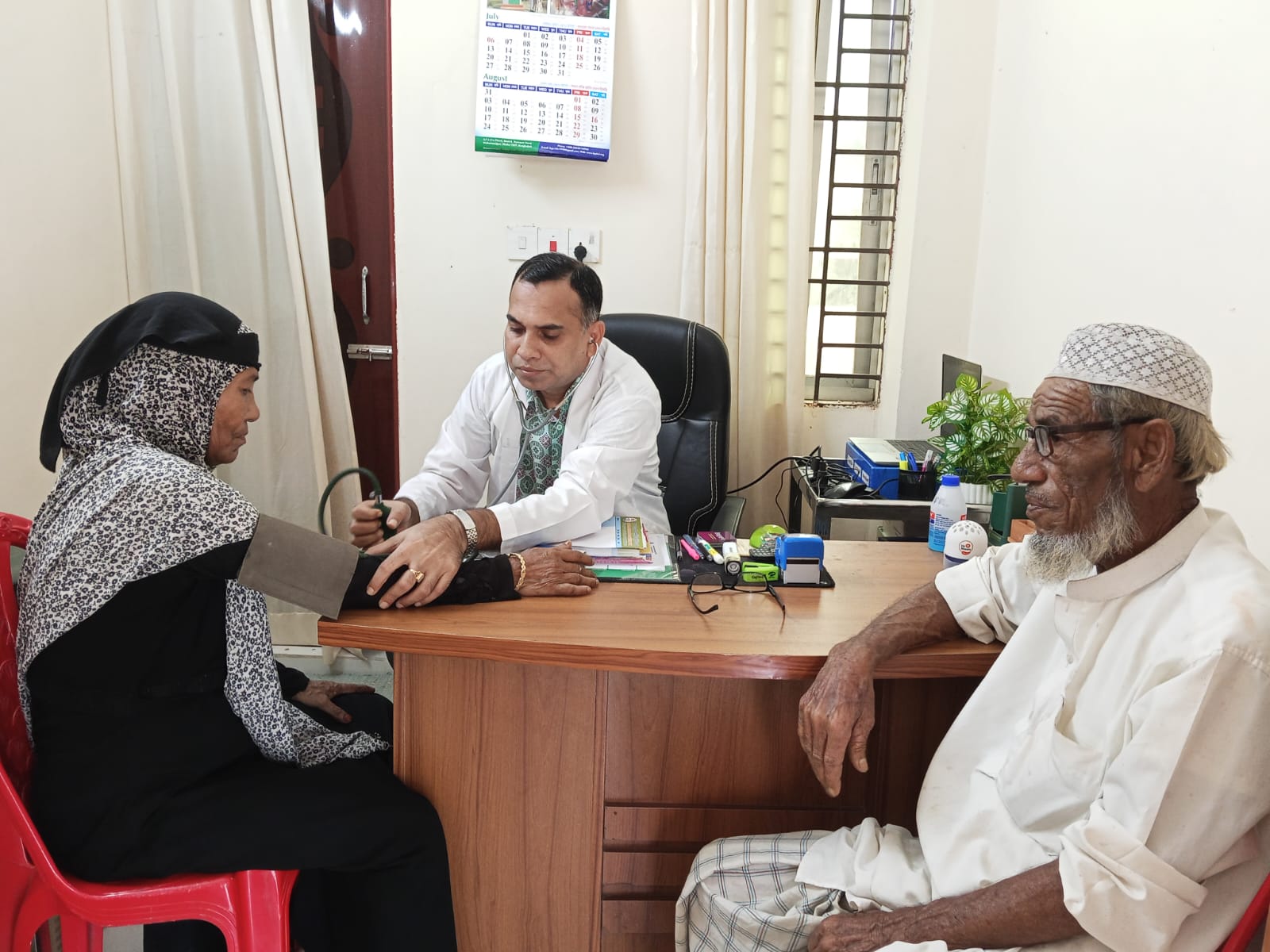
Health and Nutrition
The Health and Nutrition program contributes comprehensive health awareness and preventive support activities to the target population. This program was started from the beginning and it being continued to serve the poor and outreach families and communities. BGS has been implementing the program on priority of community needs, and accordingly its implementation methodologies have developed based on the perspective of the target population. To implement the field-based program delivery, BGS deploys MBBS Doctors, Health Workers, Health Promoters and Traditional Birth Attendants (TBAs) as frontline staff.
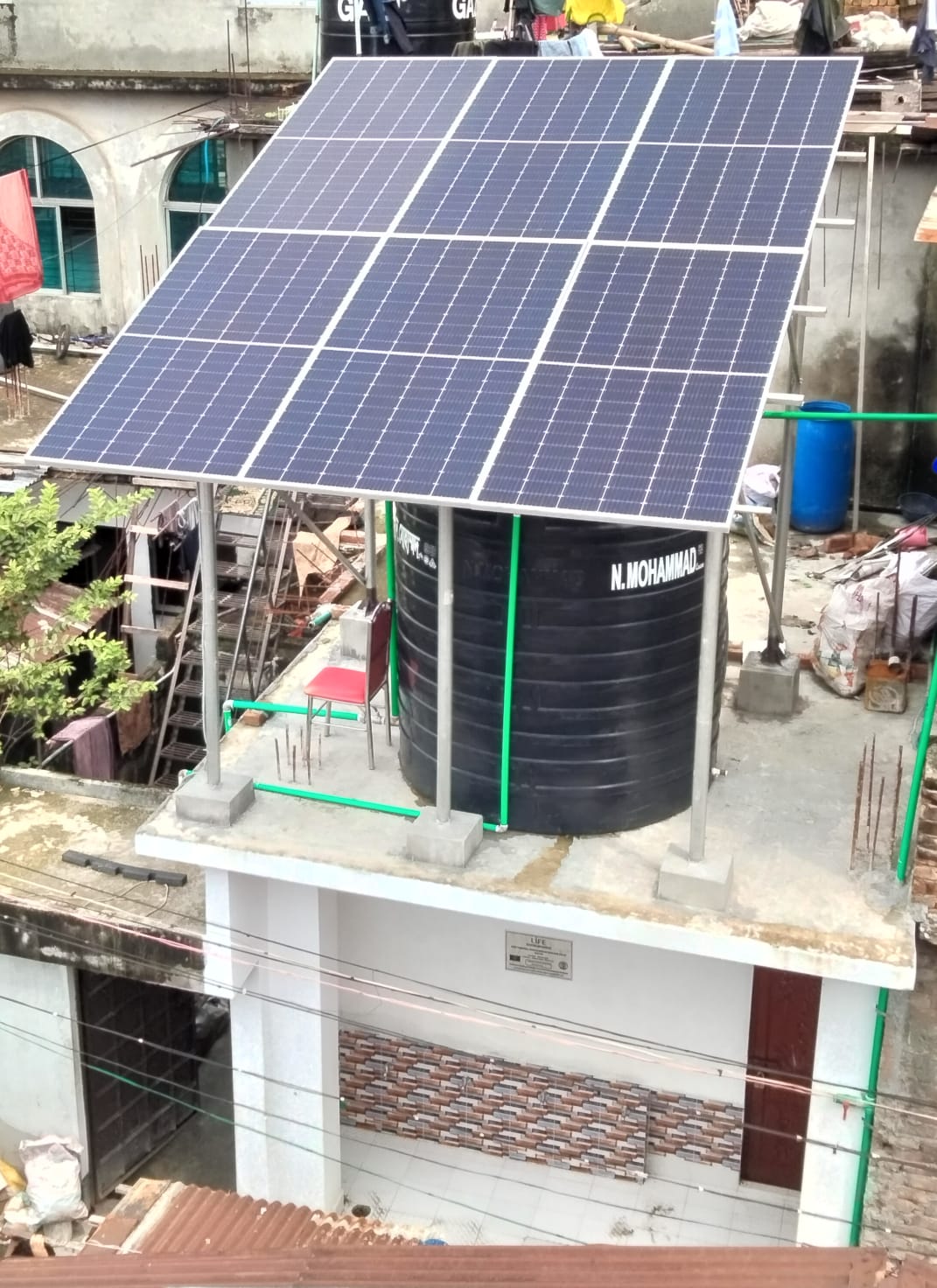
Water and Sanitation
The WaSH (Water, Sanitation and Hygiene) Program is a continued service-oriented program which has been implemented with external donor funding. In fact, BGS started development intervention after emergency relief and rehabilitation program at different areas of Cox’s Bazar district. BGS distributed hundreds of sanitary latrine sets and installed more than 1,000 tube-wells to ensure access to safe water for the most vulnerable and affected families in five Upazila of the Cox’s Bazar district during 1991 to 1993. It had provided different types of emergency supports like 4,000 low cost houses among the affected families. Later on, BGS implemented several WaSH related activities funded by the several donors such as International Organization for Migration (IOM), World Vision, LIFE, France, BRAC and Individual donors in several Upazila of Rangpur and Cox’s Bazar districts.

Emergency Response and Disaster
BGS started its journey implementing a massive emergency relief and rehabilitation program during the severely affected communities of the coastal areas of Cox’s Bazar district after the devastating cyclone where hit the areas on 29 April 1991 and has been fully involved in the process of disaster management and awareness from the very beginning. It constructed four cyclone shelter centers at Dhalghata and Matarbari unions at the initial stage. And also distributed emergency food stuff, drinking water, candle, baby-foods and ORS among more than 50,000 affected families in Upazilas of Ukhia, Teknaf, Moheshkhali, Kutubdia, Ramu and Cox’s Bazar Sadar.
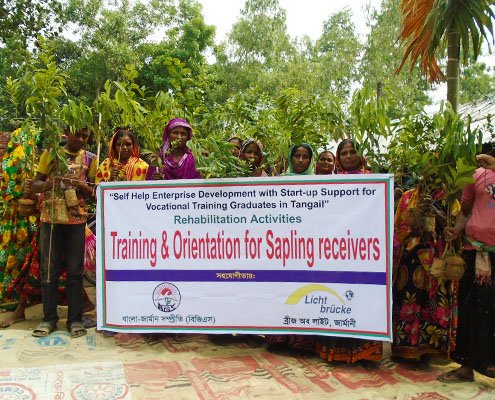
Climate Change and Environment Preservation
In responding the natural disasters with provision of emergency assistance to the victims of floods and cyclones with follow-up rehabilitation program to help the victims to restore their homes and livelihoods is the continuous approach of the BGS. While continuing to assist the victims of natural disasters by providing emergency relief and rehabilitation, BGS also become involved in diverse socio-economic development program like; education, health, income generation, economic empowerment, water, sanitation women empowerment and hygiene projects as well as capacity building for poor and marginalized communities as part of climate change adaptation capacity through local indigenous knowledge and skills.
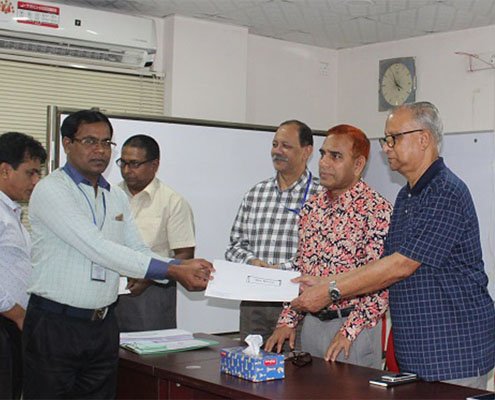
Human Resource Development
BGS believes that Human Resource Development is a continual process and an important area for organizational development. As such, BGS gives importance and emphasizes on capacity building of its staff members, and capacity building of program and project beneficiaries, in order to explore the potentialities of each and every staff to enhance the effectiveness and efficiency of their performance. The human development program allows participants to acquire management and operational skills as well as to utilize their potentials and creativity satisfactorily.
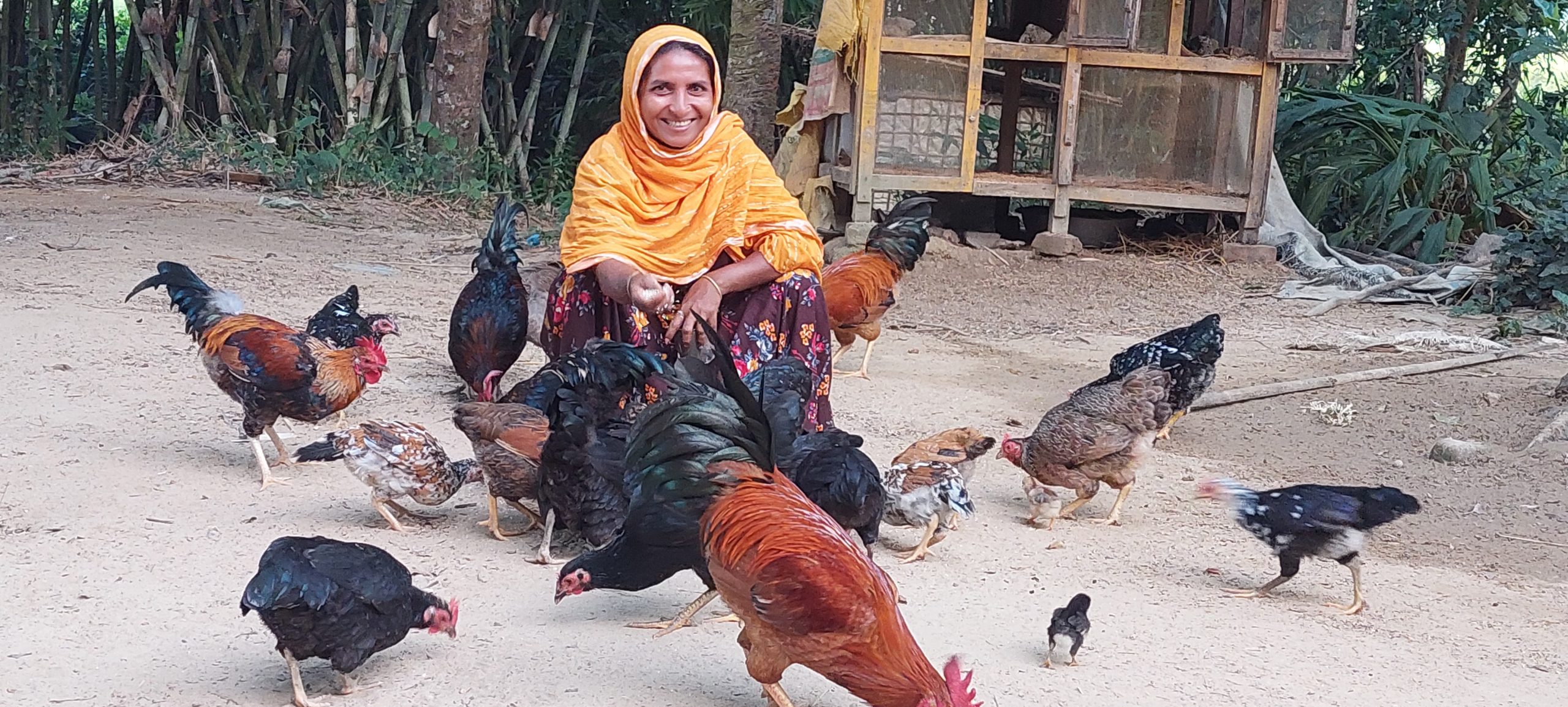
Food Security and Livelihood Promotion
Food security is the basic right for all human being. Although Bangladesh has significant achievements to ensure food secure and prevent hunger, the government is still working to meet the dietary deficiencies and nutritional needs of the vulnerable people through promoting sustainable agriculture and social safety net programs to ensure no one leaves behind. with the government initiatives, the NGOs are contributing in achieving food security and livelihood development through different interventions.
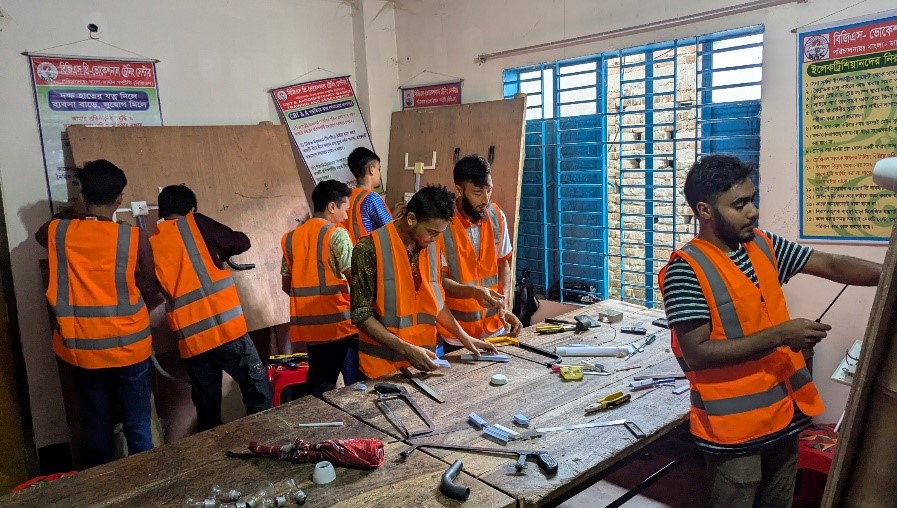
Youth Development
Youth force is the means through which the country replenishes in its values and culture. They have an important role to play in the current and future social, political and economic development of the country. They can act as a major agent for the socio-economic development of the country. Youths constitute one third of the total population of Bangladesh, for this important portion of the population, it is critical that a national outlook is determined in order to harness and utilize their true potential.



